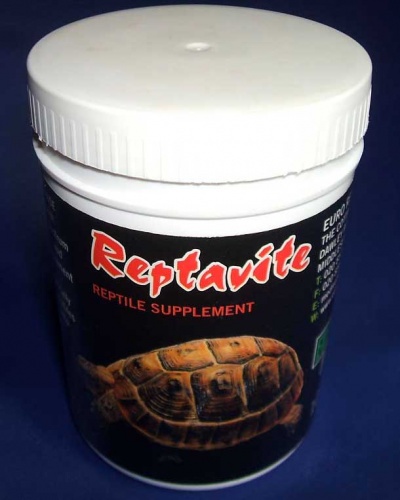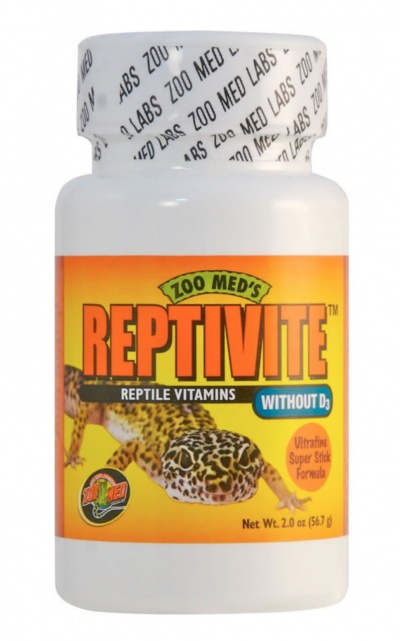Nutritional Mineral and Vitamin Supplements
As far as possible, tortoises should be allowed to graze on wild foods, as opposed to supermarket greens and pelleted tortoise food. A well-balanced, varied, natural graze will provide a diet which not only is high in fibre, but will contain some of the essential minerals and trace elements necessary for the optimum health and slow growth of your tortoise.
A question that often follows a discussion about diet is:
‘Does my tortoise need supplements, and if so then what kind and how often?’
‘Does my tortoise need supplements, and if so then what kind and how often?’
The answer is fairly complex as a lot depends on the type of diet fed to the tortoise in captivity, the types of plants it grazes on, and the composition of the soil in which the plants have been grown. In essence, yes, tortoises in captivity, from that very first mouthful, do require supplements to be added to their daily diet. However, the type and amount of supplement required will vary, depending on how the tortoise is kept, the food it is exposed to and, in some cases, the species of tortoise.

Natural unfiltered sunlight plays a significant part in the production of vitamin D3, which plays a major role in forming bony tissue in chelonians. The levels of UVB present in countries like the UK often fall far below that required of individual species and therefore artificial UVB lights and normally a vitamin D3 supplement may be required, depending on where you live and what species you keep.
In captivity, a keeper has full responsibility to ensure that the diet provided equates to that found naturally in the wild.
The aim is to provide a diet with a high calcium/low phosphorus ratio (Ca:P)
Guidelines for Supplementation
- Calcium can inhibit the absorption of the trace minerals so offer other mineral and vitamin supplements separately to calcium supplementation.
- Hatchlings and juveniles up to approximately 4 years of age need a good calcium, vitamin, and mineral supplement daily.
- Juveniles from the age of approximately 4 years should be offered a calcium, mineral and vitamin supplement every other day, with calcium supplementation on the remaining days.
- Adult sexually active tortoises require a calcium and mineral supplement two to three times per week, with calcium supplementation on the remaining days.
- Adult actively egg-laying females require calcium, mineral and vitamin supplements at least three times per week and calcium on the other days.
- Leave cuttlefish bone lying around in the enclosure. (N.B. not cuttlefish bone that has been picked up directly off the beach, unless it has been boiled first, as this could contain high levels of salt).
Arkvits:
a blend of Nutrobal and Ace-High (2:1). It provides a Calcium:Phosphorus ratio (Ca:P) of 30:1 and contains vitamins A, C and E, making it suitable for the maintenance of adult reptiles.
Ace High:
contains high levels of vitamin A, C, and E. These higher levels of vitamins are beneficial during periods of stress and disease. Vitamin A and E are both involved in helping the body resist infection. Vitamin A is essential for healthy mucous membranes such as mouth, lungs, and gut. Vitamin E has been shown to boost the immune system. Vitamin C is rapidly utilised by the body when a tortoise is under stress.N.B. It is advised that Ace High vitamin supplement is only used under the advice of a veterinarian because of the risk of overdosing the tortoise with vitamins.
Calci Dust:
A calcium supplement which is designed for use on the days that Nutrobal isn’t used. Perhaps one to choose in climates where there are high levels of UVB from natural sunlight or when using good quality UVB lighting where there is no need to provide vitamin D3 every day.
Calcium Carbonate (Limestone Flour):
is by far the purest form of calcium (40% calcium) available for chelonians (containing NO phosphorous) and it can be purchased from agricultural farm food stores cheaply and used daily. It can be offered sprinkled over food, left in mounds for the tortoise to eat at will or even applied to the weed bed to enrich the growing plants.
Cuttlefish bone:
Cuttlefish is commonly given to caged birds, cuttlefish bone can be purchased from most pet stores and should be left around in tortoise enclosures for the tortoises to freely nibble on. It is a relatively good source of calcium and helps the tortoise to keep its beak from becoming overgrown. Often tortoises will only eat cuttlefish when it has been left out in the enclosure through all weathers. It may be particularly attractive to female tortoises when they are gravid, and to juveniles going through ‘growth spurts’. Leaving a piece of cuttlefish bone in the tortoise enclosure allows the tortoise to self-regulate its intake of calcium.

Nutrobal:
Nutrobal is a high calcium balancer, vitamin and mineral supplement which includes Vitamin D3. Nutrobal offers a high Ca:P of 46:1 but it doesn’t have a wide range of trace elements.
Rep-Cal D3:
Rep-cal is a 100% oyster-shell calcium supplement with added vitamin D3 but it is phosphorous-free; so a good choice for tortoises of all ages.
Reptavite:
Reptavite is a reptile supplement with only a low Ca:P of 2:1 but it does have an extensive range of vitamins and trace minerals. Many experienced keepers will offer this one day a week, leaving out other minerals and vitamin supplements on this day.
Reptivite:
Calcium levels inadequate for growing tortoises and not recommended by experienced tortoise keepers.
Standard Bone Meal:
Although standard bone meal offers a good volume of calcium (approximately 30%), it contains a high level of phosphorous (approximately 15%). It has also been known to contain contaminants such as aluminum, arsenic, mercury, and cadmium and is, therefore, best avoided.Vionate:
Vionate is a vitamin and mineral supplement. It has a good range of trace elements but a poor Ca:P of only 1.4:1. It is useful for giving to juveniles once a week and to breeding females.
© The Tortoise Table, 2017






